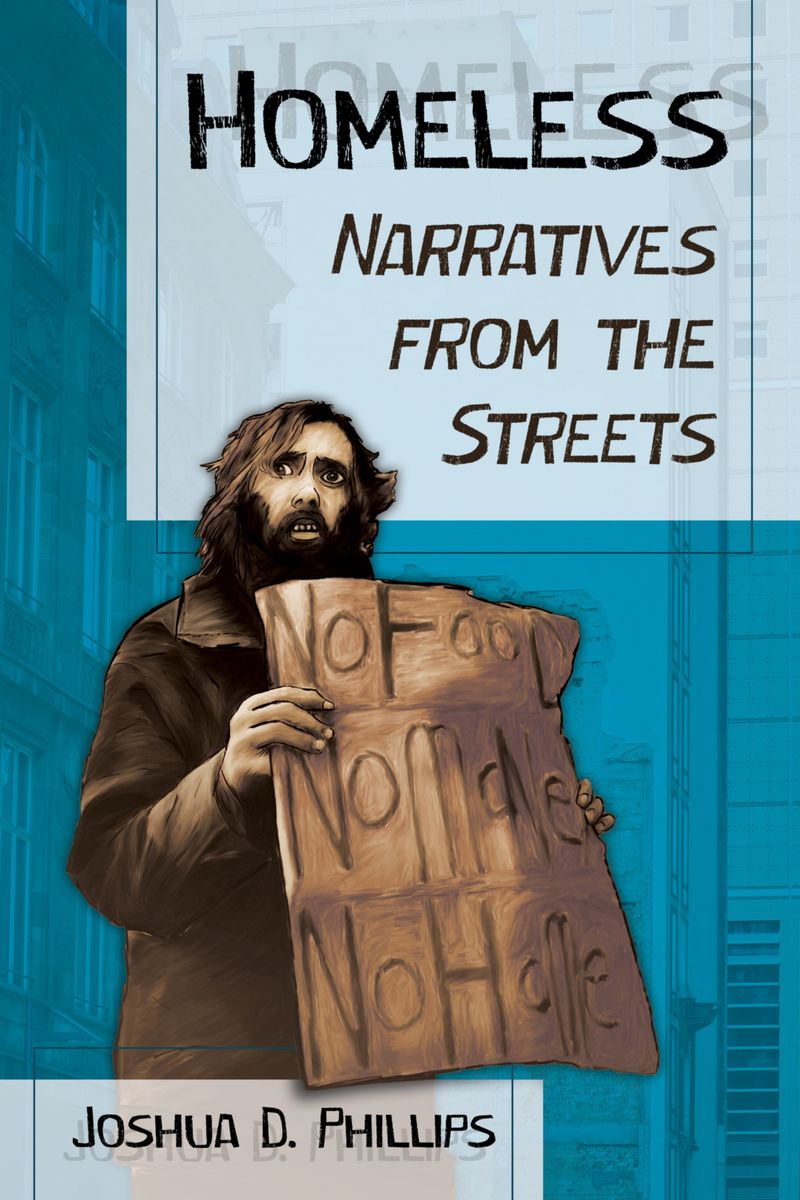
Joshua Phillips, assistant teaching professor of communication arts and sciences.
When Joshua Phillips, an instructor in communications arts and sciences, was earning his doctorate, he asked one of his advisers to help him choose his dissertation topic. The adviser encouraged Phillips to study an issue that he already cared about deeply: homelessness.
“I had been volunteering and working with the issue of homelessness for almost a decade at that point,” said Phillips, “so he thought it might be interesting for me to do something more academic with it.”
Taking his mentor’s advice, Phillips began his dissertation in 2012, inspired by his personal involvement with homeless shelters in Illinois and New Jersey. The project continued to evolve after he earned his doctorate, resulting in his book, "Homelessness: Narratives from the Streets."
Phillips conducted interviews with dozens of homeless individuals whose stories provide the foundation for the book.
“It was easy for me to do that type of research without being overly manipulative because these were individuals that I already knew,” he said. “I was just collecting stories of acquaintances—of friends who happened to be homeless.”
In his research, he found that many public policies about homelessness fail to effectively address the community’s needs. According to Phillips, this often happens because policymakers do not include homeless individuals’ voices in the policymaking process.
“Most of the conversations we have about homelessness are very macroeconomic,” said Phillips. “We have these large conversations about welfare policy, but we’re not actually talking to the beneficiaries. That’s what I wanted to do—to find out how people were using those welfare systems that they are provided with.”
Phillips cited food stamps as one example of a policy that could use reform.
“Let’s say a person who is homeless receives a $200 food stamp card,” he said. “Well, he can’t buy hot food with food stamps. Most homeless people don’t have a kitchen or refrigerator or anywhere to store that food. So they either buy expensive prepackaged foods at gas stations, or they try to sell their food stamp cards. Money in their pockets is better than a $200 food card they can’t really use anyway.”
Phillips hopes that his book will encourage legislators to consider the perspectives of homeless people when they draft public policies.
“A lot of the rules surrounding homelessness are made by people who have never lived those realities,” he said. “If we don’t understand the homeless community’s reality, we’re not going to make a system that works for them.”
He also hopes to encourage more dialogue between homeless and nonhomeless individuals.
“Narratives matter,” said Phillips, “and the only way to obtain narratives is by building relationships. If we really want to talk about policies, welfare reform and poverty, we first need to have conversations with individuals in those circumstances.”
"Homelessness: Narratives from the Streets" will be released in October 2016.
